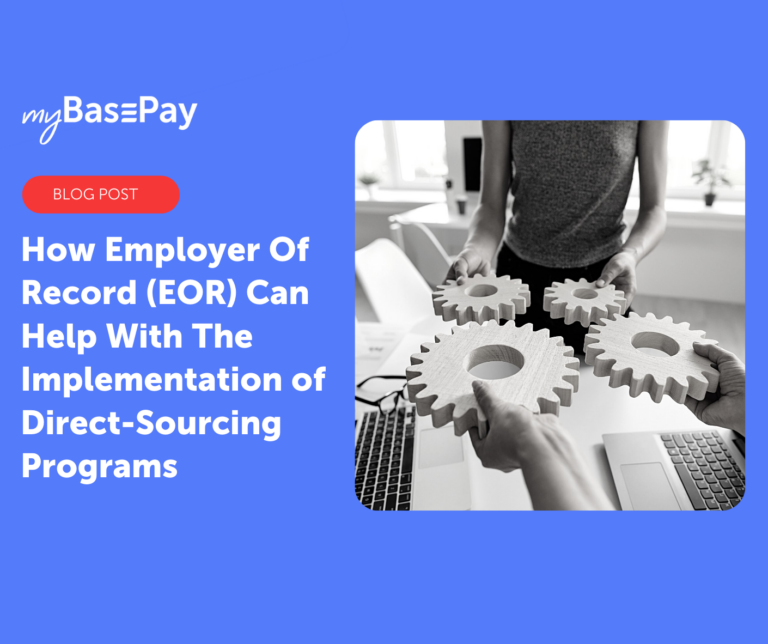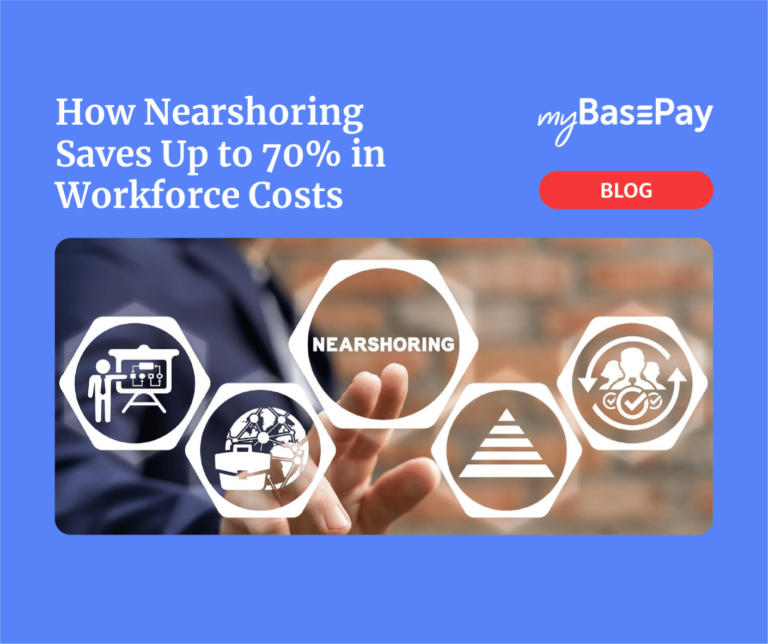6 of the Biggest Tax (and Payroll) Benefits of Working With an EOR
Opening a foreign branch for your company is an exciting undertaking. Not only does it make new global markets accessible, but it offers greater access to a broader talent pool.
However, expanding your business’s global presence can seem easier said than done. With all the responsibilities involved with legal procedures, foreign employment regulations, tax documentation, and other details, international talent acquisition can be a painstaking process.
Fortunately, that’s why employers of records exist — or third parties who manage the establishment and operation of foreign business entities. EORs help ensure that bureaucratic barriers don’t hold your company back from expanding. While EORs are responsible for various HR-related functions, their most notable duties involve tax and payroll management.
Employee labor laws and regulations differ from country to country, and tax documentation can get very complex, very quickly. Likewise, payroll processing and administration can greatly fluctuate. One wrong step and your company could risk violating local country employment laws.
So, if you’re still on the fence about hiring a third party, here are six tax and payroll aspects where an EOR can benefit your company’s international expansion efforts.
1. Responsible for Tax Registration
Simply put, an EOR is seen as the legal and official employer of your international workforce. As such, it’s an EORs responsibility to understand and handle all the legal requirements involved with tax documentation and registration. This means they are required to withhold certain taxes, such as income tax and payroll tax contributions from employee payments.
Additionally, EORs must submit those amounts to tax authorities regularly to comply with the country’s tax laws. Documents like W-2s, I-9s, or 1099s are issued and handled by the EOR on your company’s behalf.
As foreign taxation laws are different according to their country of origin, this ensures your company reaches full compliance with any local laws and regulations. Since EORs act as experts in this area, they can also update your remote workforce in their local language and ensure they are just as compliant with their local bureaucratic standards.
2. Processes Payroll
Managing your company’s payroll is essential for any business, particularly for those looking to expand into international markets. A consistent payroll process is crucial to keeping employees happy and productive, so the room for error is minimal.
Your in-house payroll teams have a large scope of responsibilities — bringing on foreign contractors will only add to their burden. That’s why companies outsource EORs, as they can manage payroll obligations.
Just with taxation, foreign nations have specific legal requirements concerning how and when their employees are paid. These requirements cover necessary deductions, garnishments, expense reimbursements, and leave entitlements.
Whatever country you choose to source your remote workers, an EOR oversees that their payment methods and cycles comply with legal obligations, as well as local customs.
3. Administers and Collects Employee Contracts
Whether it be permanent or contingent workers, hiring new employees represents a key moment of growth for your business. Especially if you’re hiring from foreign markets, your company can now achieve access to fresh talent, while also building a competitive global workforce.
Regardless of the state or size of your business, understanding the administration and collection of different employment contracts is critical to hiring the right person or team for your company. Luckily, that’s where an EOR can help.
Whether it’s an indefinite, casual, or fixed-term employment contract, EORs can employ remote staff under these jurisdiction-compliant contracts — lifting the burden from your HR teams.
Every country has a different approach to the proper employment of citizens, so having the expert advice and help of an EOR can ensure you not only select the most appropriate one for your business but also ensure that your remote employees understand their rights under such contracts.
Choosing the right employment contracts will also ensure your employees are correctly classified, which is crucial to accurate taxation and payment methods.
4. Manages Benefit Packages and Social Contributions
Benefits packages and social contributions are often overlooked in the tax and payroll process, but they are just as crucial as any other legal requirement. Your local workforce will have a collection of non-wage compensation that supplement their salary — and your foreign staff is entitled to receiving these benefits, too.
With an EOR, they can register your remote staff with pension funds, health insurance, and workers’ compensation providers, as well as any other desired benefit provider for the employee.
This may be to provide benefits in addition to legal mandates, or perhaps to comply with the legal requirements for employers. Whatever the case, your HR department can rest easy knowing the EOR is handling all the necessary benefit obligations.
5. Responsible for Termination and Re-Hires
Just as the process of hiring and onboarding employees is important, so is the process of terminating and offboarding them. Once they’ve consulted your company, an EOR will terminate foreign employees and conduct proper offboarding — from writing the formal letters of resignation, to the execution of severance pay and associated processes to secure your company’s intellectual property.
Throughout the entire process, the EOR ensures each step is done according to the employee’s local laws and regulations. Also, there might be a rare occasion where you have to re-hire a previously terminated employee. In this case, the EOR will take charge, renew the expired contract, and walk them through the onboarding process.
6. Mitigates Misclassification Risk
One of the biggest risks when hiring a foreign employee is worker misclassification. Worker misclassification refers to the practice of mislabeling workers as independent contractors rather than an employee. While this might sound like a small mistake to make, it can lead to serious consequences.
Misclassification essentially deprives the federal government of owed tax revenue, including income, social security, and unemployment taxes. Since employers pay taxes on employees, not contractors, misclassification can be seen as tax evasion.
In the case of international talent acquisition, if the tax or employment regulators consider the nature of the professional’s engagement to be employment, your company could face serious penalties.
Fortunately, with an EOR, any worker sourced through that third party is considered an employee, so there’s reduced misclassification risk, which means it’s less of a liability for your company.
As your business looks to further its goal of expanding globally, its time to consider hiring an EOR. Thanks to their expertise, EORs can handle all tax and payroll responsibilities involved with your remote workers, giving your company the freedom to conduct business on your terms.
Author: Cesar Jimenez, myBasePay CEO
Cesar A. Jimenez is an entrepreneur, investor, and military veteran with over 25 years of staffing industry expertise successfully leading technology staffing organizations. His expertise in the IT industry allows him to use his experience as a thought leader for talent acquisition, staffing, IT, and recruitment technologies with a passion for contingent workforce solutions. Cesar has held various leadership roles for both a global staffing organization and technology solutions companies. This expertise has enabled him to develop alternative workforce models that provide the agility for organizations to be competitive in today’s marketplace. In his spare time, he enjoys spending time with hisfamily, working out, and coaching high school baseball players.






